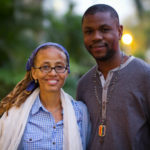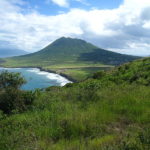In searching for human rights activity in Thailand it’s easy to be distracted by the sexy flash and booming discos of Bangkok, Pattaya, Phuket and Chiang Mai, which to many visitors and reporters appear to present an exciting ‘liberated’ face of homosexuality in Thailand.
However, the reality is quite different the longer one stays or settles in Thailand, or becomes involved in an intimate relationship with a Thai man or woman. A foreigner (farang) soon understands something quite different: the conservative pale that hangs over the lives of LGBT citizens and which overshadows by far the immediate short-lived neon of the nights.
Also see:
Gay Thailand Stories
Gay Thailand News & Reports 2000 to present
Gay Thailand Photo Galleries
By Richard Ammon
GlobalGayz.com
June 2007
The Past
To help appreciate the significance of the conservative tradition on gay life in Thailand, law professor, author and Thailand resident Douglas Sanders has written: “Asian leaders often describe their societies as conservative. Confucian <and Buddhist> traditions continue to have strong influence in parts of Asia, with their stress on family lineages and procreation…. leaders speak of the ‘Asian values’ of loyalty to family, religion, community and nation, over the individualism and competitiveness of Western systems. An Asian goal is harmony, not self-assertiveness.”
Sociologist and Thai cultural analyst Peter Jackson has written, “Thai culture (and Confucian culture) places the maintenance of public shows of harmony at its core, valuing conformity to displays of orderliness…”
And British activist Peter Tatchell has observed: “For the few lesbian and gay activists in Thailand, their tactics are very different from the confrontational approach of their western counterparts. This is largely due to Thai cultural traditions which attach great value to conciliation and consensus.”
Reading these analyses a reader can begin to understand why gay rights work has been slow in coming in this country where the sexy bright nights, soaring skyscrapers, material enterprise are deceptive measures of Thailand’s true gay scene.
Why have gay rights not been a visible driving cause in this highly westernized country with a real King and many queens of the night?
1-Historically Thailand does not have a tradition of personal sexual self-expression (indeed, in the West this tradition is less than 50 years old). Self-censorship in the service of entrenched customs has bowed the heads of individuals in the past to the authority of leaders, an emperor or king to whom one swore allegiance for life. Personal ‘difference’ could spell trouble for an outspoken person and one’s family.
2-A secondly reason for the muted cry for gay rights is that in the annals of Eastern law and religion the subject of homosexuality has hardly existed in any formal decree or code. It was commonly left out of the regulations about life, work, family or devotion to a higher power. Same-sex activity or feelings were not stigmatized by laws that criminalized it or religious doctrines that condemned it as immoral or sinful. It was simply not included in any institutional codes or mores that governed daily behavior and discourse.
Part of the reason for homo-erotic issues being left out of official codes of conduct was that such attractions were silently understood in a frame of mind quite different from modern times. Far from the medical-legal-religious proscriptions and sensational publicity of the late 19th and entire 20th centuries, same–sex enjoyment was considered by most southeast Asians simply as ‘play’ or ‘having fun’; it was not ‘serious sex’ since it was not a procreative effort. It was a matter to be taken lightly by those engaged in it. Should a deeper and significant love affair emerge it was usually incorporated into the wider scheme of an individual’s duties and other relationships; it was adapted to fit within standard acceptable routines and explanations. A lover was a ‘friend’ not a mate or domestic partner or primary other.
There were no social labels or behavioral categories which uniquely identified an affair outside the realm of normal life. One was in love with a ‘friend’, an affectionate companion, while both continued to live apart with their families, wives, children and extended relatives. Further, it’s important for an outsider not to presume this apparent non-discriminating laissez-faire attitude meant tolerance or acceptance. Indeed, if two married fathers were caught together they would have faced the (non-violent) scorn of their peers and families and badly damaged the honor of both families.
3-Lacking official oppression or persecution from the state or temple or unaware family there was no active public ‘enemy’ to fear. There was no public struggle, no need over generations to change anything. The idea of sexual rights and sexual freedom is a 20th century Western notion where oppression, stigma, persecution and prohibition against blacks, women and gays has evoked a rebellion, a civil rights rebellion against identified oppressors. In the East there was no clamoring to gain civil rights because there was no sense they had been lost, neglected or abused—or that they even existed.
Douglas Thompson of Purple Dragon Tours put it this way: “a visitor probably will not ever be able to understand Thai homosexuality in all of its various forms and degrees. As I have said many times before, ‘gay’ is an idea that people bring with them from outside. It does not exist here, so subjecting Thai culture to foreign standards is fruitless and insulting. There is no big movement to liberate people because they really do not feel the need to be liberated. We don’t have nuns here with rulers, Republican politicians, or the Christian right telling us that we are mentally ill or disciples of Satan.”
The Present
But the world progresses and societies change over time. Human rights in the 21st century, like global warming, is an issue that has come front and center on the world stage, urged forward by the horrors of genocide in Africa, ethnic cleansing in the Balkans, the cruelties of war in Iraq and blatant worldwide homophobia against gay citizens in virtually every country.
So it’s no surprise to find in mostly peaceful Thailand gay that activists are pushing against a logjam of religious, cultural and legal silence, absence and denial. Within recent years Thai gay human rights advocates have attempted to open a window of new thought among a complacent population as well as among political and social leadership. The struggle is uphill but there are determined activists who have decided the time is appropriate to push against the gravity of conservative Thai rituals, unquestioned practices and ignorant institutions to pry open minds that have no will (or awareness) to understand the varieties of human sexuality.
Anjaree
Enter Anjaree the most vocal and active gay rights organization in Thailand today with a clear sense of mission and take-charge leadership.
Anjaree is unique among Thai LGBT organizations. Originally, in 2003, it was the only group targeting women who love women. Headquartered in Bangkok, it now has members throughout Thailand, providing information, encouraging community formation, and sponsoring social events for Thai lesbians.
Founded by Anjana Suvarnanonda who still leads it, Anjaree (http://www.anjaree.net/ in Thai) is unique because it goes beyond the purpose of social support to include political activism and advocacy.
The international organization Astrea Lesbian Foundation describes Anjaree this way: “Anjaree is a lesbian activist group that has almost single-handedly changed the landscape for Thailand’s estimated 6 million LGBT citizens. Anjaree helped overturn a college policy prohibiting gays and trans-gendered students from enrolling in 36 campuses; in 1998 they helped reverse a government policy banning homosexuals from appearing on television.
“ Today, they continue to facilitate connections among lesbians through their website and newspaper. In January 2002, Anjaree achieved a historic victory by successfully pressuring Thailand’s Ministry of Health to state publicly that homosexuality was not a mental illness…”
Throughout Thailand LGBT people have historically been vilified—behind closed doors, face harsh discrimination in schools and workplaces, and are constantly pressured to be “cured” and get married. Anjaree wants the Thai government to train mental health workers to be responsive—without prejudice—to its LGBT citizens.
Currently, Anjaree is working with the Ministry of Mental Health to organize government-subsidized trainings for psychiatrists and other professionals in the field.”
(Another LGBT activist organization in Thailand is the Rainbow Sky Association in Bangkok . It was founded in 2001 by Natee Teerarojjanapongs as an out-spring of his White Line Dance Troupe, which Natee founded, directed, choreographed, and danced, in an early effort to raise money for the poor. In 1987 he changed its focus to campaigning against AIDS. Today Rainbow Sky is respected for its untiring work on HIV/AIDS health issues.)
The Future
The 2006 bloodless military coup that unseated the prime minister and suspended Thailand’s constitution was a national trauma and a nervous shimmer for the international business world.
Ironically, it inadvertently offered a unique window of opportunity for human right activists: the military leaders suspended the old constitution and called for rewriting the country’s legal and social foundation.
Such events happen rarely in the civilized world and this opportunity is one that Anjaree, with the active support of Rainbow Sky, is taking advantage of. Anjana and her group are leaning on political leaders, constitutional scholars and legal experts who are trying to hash out changes to the old charter in an effort to reduce the political corruption which brought about the coup in November. With the new changes Anjana wants to be sure sexual minorities receive their share of recognition and protection under the law.
Anjaree’s most recent rallying effort was recently reported in the Bangkok Post on May 26, 2007 by Sanitsuda Ekachai, a staff reporter:
“ The new constitution must recognise the rights of gays, lesbians, bisexuals and the transgendered, gay rights activists urged yesterday. The equality clause in the draft constitution only endorses equal rights between men and women. ”There should be an additional clause to recognise diverse sexuality, which will help ease the problems of discrimination we are facing,” said Anjana Suvarnanonda, founder of Anjaree, an advocacy group of female homosexuals.
“ The National Human Rights Commission also supports the move to amend the draft charter so the gay community is accorded the same rights as heterosexuals, said human rights commissioner Khunying Ambhorn Meesook.
Kittinan Tharamatat from Fah Si Roong (Rainbow Sky), a gay rights advocacy group, said that if the new charter recognises diverse sexuality and mandates equal rights for the gay community, various other, discriminatory laws will also have to be amended.
“ Rape laws, which currently protect only female victims, for example, will have to be amended to protect men, homosexuals and the trans-gendered too. At present, raping boys or men is legally considered to be only sexual molestation, which carries lighter punishment than that of rape. ”Rapists, regardless of the gender of their victims, are all similar animals from hell, so they deserve the same punishment,” he said.
“ The law, he added, must also be subsequently amended to legalise same- sex marriage, thus allowing homosexual partners to have inheritance rights. At present, when one of the partners dies, his or her money and other assets go to the family of the deceased.
“ Job discrimination against homosexuals and the trans-gendered will also become illegal if the new constitution addresses the issue, he added. ”Right now we, the trans-gendered, have a very limited work choice. The constitutional change will help protect us against this discrimination,” said Tanyarat Jirapatpakorn, Miss Tiffany Universe 2007, a trans-sexual beauty queen.
“ Meanwhile, Chantalak Raksayoo of the Sapan Group stressed how important it was for the constitution to clearly state a specific timeframe for legal amendments to recognise diverse sexuality and gay rights. ”Otherwise such rights will exist only on paper,” she said.
“ According to Ms Anjana, half of young people who attempted suicide in Thailand were homosexuals and trans-gendered people who could not put up with severe pressure and condemnation from their own families and society.
“ In addition to legal changes, Prof Suporn Koetwang, a noted public health expert, called for better public education to rein in homophobia among the general public.
“ Sawing Tan-oot, a member of the National Legislative Assembly (NLA) and the Constitution Drafting Assembly, will propose the clause on gay rights be included in the draft charter. But many NLA members still do not understand the concepts of gender and diverse sexuality, he said.
Finally
An irrevocable step has been taken. Homosexuality exists throughout Thailand; for many it is not just child’s play or ‘fooling around’; the silence of homophobia is being called to task; the veil of ignorance is being lifted; human rights must include recognition of gays and their inclusion in those rights; the constitution must be modernized to create full equality to all citizens regardless of their differences; these demands are now public and cannot be ignored.
















